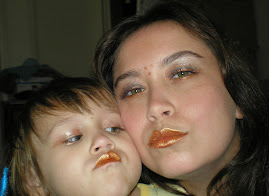My pre-labor imaginings of life as a first-time mother were nothing like the reality. A colicky, asthmatic, tense, lactose intolerant infant with latch-on difficulties, after a 44-hour labor and hemorraghing -- this simply did not jive with the earth-mother-goddess image I had concocted during my pregnancy. The discrepancy rings true for thousands of mothers, and leads to much self-blame, anger, and sadness.
May 2008 has been designated Postpartum Mood and Anxiety Disorders Awareness Month.
Postpartum mood, anxiety, and thought disorders (postpartum depression) affect 10 to 20 percent of pregnant and postpartum women. (Yes -- "post"partum depression CAN start during pregnancy -- a fact that has long been all but ignored by many medical professionals.)
Kathleen Kendall-Tacket, University of New Hampshire health psychologist and researcher for the UNH Family Research Lab, is the chair of the New Hampshire Breastfeeding Taskforce and is and International Board Certified Lactation Consultant. The impact of maternal depression is one of her current research interests.
Kendall-Tackett suggests that the following non-pharmaceutical treatments be used in treating postpartum disorders:
Omega-3 fatty acids
Bright light therapy
Exercise
Social support
Psychotherapy
St. John's Wort
For more information on breastfeeding friendly approaches to treating maternal depression, visit http://www.nhbreastfeedingtaskforce.org.nhbftf-ppd-curriculum.pdf
OR view the podcast, "Treatments for Depressed Moms That Are Breastfeeding Friendly" at
http://breastfeeding.blog.motherwear.com/2008/02/podcast-breastf.html
Subscribe to:
Post Comments (Atom)
.jpg)
No comments:
Post a Comment